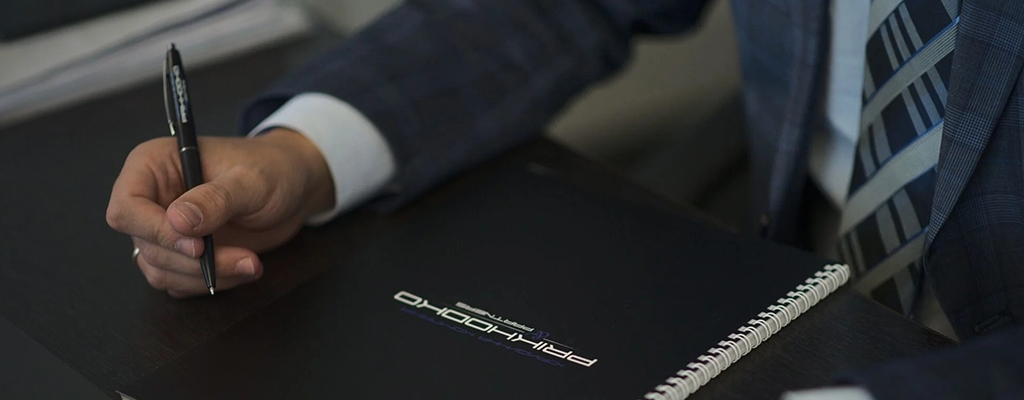
"Perfection of execution in any aspect of your question is our credo!"
Lawyer
A specialist in the practice of migration and corporate law, he also specializes in legal support for business in EU countries.
LEGAL SUPPORT FOR UNLOCKING CRYPTO ASSETS
In recent years, cryptocurrencies, in particular, Bitcoin and Ethereum, have gained wide recognition, becoming not only a new form of digital assets but also important means of storing and sending money. And if the position on the “storage” of assets in digital currency can be controversial, for the purposes of sending – this is undoubtedly the most convenient and fastest way, and also practically free compared to the fees and limits of the banking systems of the world.
However, along with the growing demand for crypto-assets, there is also a need for legal support and protection, especially regarding the unlocking of crypto-assets or the possibility of returning them. In this article, we will consider the main aspects of the root causes and consequences of this issue and why legal support is necessary, especially in the early stages of its occurrence.
One of the main advantages of cryptocurrencies is their decentralized nature, which means there is no central governing body. Each user has a unique private key that allows access to their crypto assets. However, when a user loses or forgets their private key, it can lead to the inability to access their crypto assets.
Unlocking crypto assets is quite a complex process, as it requires operations to be carried out in a cryptographically secure environment.
Some of the main challenges faced by professionals include the following:
- legality and recognition of cryptocurrencies.
In many countries, there are insufficient regulatory provisions regarding cryptocurrencies and their use. Lawyers must have expertise in local cryptocurrency laws and clarify the legal status of cryptocurrencies to ensure the legality of the unlocking process.
- technical complexity.
The technical complexity of unlocking crypto assets can be a challenge for individuals who do not have a sufficient understanding of cryptography and the technical aspects of cryptocurrencies. Depending on the case, understanding the operation of blockchain technology and cryptographic algorithms is important for successfully supporting the unlocking process.
- privacy and security.
In the process of unlocking crypto assets, it is important to ensure the security of the client’s information while simultaneously meeting the requirements that are distributed for the regulation of virtual assets in the respective region.

What are the main reasons for blocking the client’s digital assets by modern exchanges?
Blocking the client’s digital assets by one or another exchange is a common practice that can have various reasons. The main factors that lead to the blocking of assets include the following:
- Compliance with legislation and regulation.
Cryptocurrency exchanges are mostly subject to the requirements of legislation and regulatory authorities. This means that they must establish and enforce rules that address the legality of the sources of funds, the prevention of money laundering, and the financing of terrorism. If suspicious or illegal transactions are detected, the exchanges may block the client’s assets for further investigation and legal compliance.
- Violation of exchange rules.
Cryptocurrency exchanges have their own rules for trading and using the platform. If a customer violates these rules, such as market manipulation, fraudulent practices, or breaches of security policies, the exchange may freeze their assets as a sanction or to protect their platform and other users.
- Suspected fraud or cybercrime.
In the world of cryptocurrencies, fraud, and cybercrime are not uncommon. Exchanges take security and monitoring measures to detect suspicious activity. If there is suspicion of fraud, use of stolen assets, or criminal activity, the exchange may decide to freeze the client’s assets and notify the relevant law enforcement authorities.
- Verification and security requirements.
Some cryptocurrency exchanges have a verification procedure that requires customers to confirm their identity and sources of funds. If the client has not passed verification or provided insufficient documents, the exchange may temporarily block his assets until the necessary data is received.
It is important to remember that the blocking of the client’s digital assets by exchanges may have a temporary, and in some cases – indefinite in time nature, and is carried out in order to ensure internal protection and compliance with legislation and regulatory requirements. In addition, each exchange has its own rules and procedures that determine the conditions and reasons for blocking client assets.
However, if you have doubts about the appropriateness of blocking your assets or the relevant exchange does not respond to your requests in any way for a long time, the situation can become very complicated if your assets have been attacked with the intention of fraudulent actions to illegally take possession of the latter.
Unfortunately, spending crypto-assets as a result of fraudulent activities is becoming an increasingly common practice. Since cryptocurrencies are decentralized in nature and give users full control over their assets, recovering crypto assets after loss due to fraudulent activities can be a real challenge. At the same time, there are several aspects and opportunities that relevant specialists can involve in the process of legal protection.
A component of law enforcement activity – and identification and communication with law enforcement bodies in the presence of local legal and technical regulation in the relevant jurisdiction.
In the event of fraudulent activities where crypto assets have been stolen or stolen through cyber attacks, cooperation with law enforcement agencies and cyber police may be necessary.
A component of technical capability is the analysis of blockchain transactions.
Blockchain is a public ledger that stores the history of all cryptocurrency transactions. Appropriate specialists can analyze blockchain transactions in order to identify the route of asset transfer and provide all possible identification measures. This can help identify those responsible for fraudulent activities and assist in confirming ownership of assets or their write-off.
A component of legal measures is measured against fraudsters.
Depending on the jurisdiction and specific circumstances, legal action may be taken against fraudsters to recover crypto assets.
For example, in the case of unscrupulous crypto exchanges and their owners, we collect the available material and technical base, evidence, study all the available information about the founders and operational managers from the relevant sources, choose the jurisdiction for applying to the court and/or local law enforcement agencies, submit procedural documents taking into account the legal specifics of local legislation and accompany the process until its completion.
Thus, first of all, after the problem arises, it is necessary to establish the cause as soon as possible, then our specialist provides a legal opinion on the plan of further actions and their feasibility – because the algorithms of legal support during, for example, the blocking of funds on the exchange to establish the origin of funds and carry out fraudulent actions will differ.
In addition to the efficiency factor, there are also objective circumstances, including the jurisdiction, the possibility of cooperation with law enforcement agencies, and the technical capabilities of our team. In general, legal support for solving the above-mentioned issues requires a combination of knowledge in the fields of cryptocurrency and the international regulatory framework, as well as the ability to adapt to a changing regulatory environment.
That is why the Law Firm “Prykhodko and Partners” attracts colleagues with deep knowledge in the field of cryptocurrencies, cyber security, legal support, and work experience in most parts of the world.

Calculate the cost of services
1 question
Are your funds on a crypto exchange?
2 question
Are your funds blocked?
3 question
Have your funds been debited?
4 question
Do you have confirmation of the source of funds?

A specialist in the practice of migration and corporate law, he also specializes in legal support for business in EU countries.
Articles on the topic:
call back
during the day



